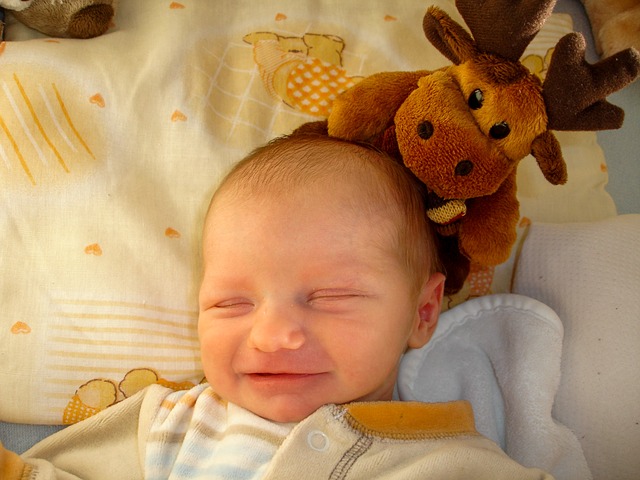
During the pregnancy, doctors suggest several types of medical tests. These, are done to prevent any behavioural or developmental disorder, in the baby. Autism is one such disorder which begins to show its symptoms in infants. More importantly, the signs of Autism in Babies 2-4 months old need to be identified early for timely treatment.
Symptoms of Autism in Babies
Autism, in simple medical term, is called autism spectrum disorder (ASD). If USA estimates are to be concerned, 1 out of 68 kids is found positive for autism disorder.
Babies[1] with autism begin to show developmental delays in terms of social and communication skills. These kids, show differences in body gestures, play behaviour, crawl, sit and walk acts.
Signs of Autism in Babies 2-4 months old
It is crucial to identify the early signs of autism in babies. That is because the infants need to be taught the skills early.
In early age, the brain is flexible and more focussed to receive instructions. Let us find out common signs of autism in babies.
#1 No response to facial gestures
Autistic kids have problems in reading facial expressions. The most prominent autism sign in 2-4 months old baby is the unresponsive reply towards parents facial smile gestures.
The babies remain indifferent when parents try to make him/her smile or initiate a play. In a close observation, the baby looks, to be occupied, in his self.
#2 Seizures in Autistic babies
The brain malformations in autistic kids also contribute to seizures.
To be specific, 1 out of 3 individuals with autism disorder, is found with epilepsy. A baby getting seizures has her body become loose and unresponsive with the head dropping all of a sudden.
#3 No eye contact with parents
Autistic babies do not make eye contact.
When a caregiver looks into the eyes of an autistic baby eye, the baby doesn’t respond. Autism babies, some times, even make little eye contact, but facial expressions remain static.
#4 Leg-and-Arm flapping
Flapping is also a common sign of autism in babies.
The behaviour, however, also overlaps with the action of a normal kid. But, if the infant’s hand and legs flap more frequently, it is a cause for attention. Because the kids with autistic risks move their body parts in an unusual and repetitive manner.
#5 Weak to read physical gestures
Although the behaviour gets more visible at a later age, babies with autism have lower ability to respond to physical gestures.
When you point at them with your finger or any object, they do not respond by holding your finger. Visually, they stiffen their limbs, fingers, or legs.
#6 Delayed Speech
A child with autism is unable to speak for a long time. A normal baby should babble in around 4 months of age.
Kids with autism take up to 36 months to speak properly. Late speech, however, is also common in infants with some kind of hearing loss.
# Loneliness friendly
Autistic infants do not like gathering around him.
In fact, a baby remains neutral after seeing her parents after a short interval. This can be seen as a trait towards low social interaction and relationship. 2 months old babies with autism can also be witnessed with a whimpering to intense crying due to her trouble in making emotions.
Tests that detect Autism
If you suspect that your baby can have autism you should, first, discuss this with a pediatrician. Doctors and medical specialists, typically, prefer three years or older kids for assessing for Autism.
- Developmental screening
In developmental testing, a child is examined, for developmental delays at various stages such as nine months, 18 months and 24 or 30 months. - Comprehensive diagnostic evaluation
The child undergoes extensive testing in a comprehensive clinical evaluation. The test includes many vital medical tests like- hearing power, eye tests, genetic tests, neurological tests.

Lifebing is driven by an unrelenting passion for promoting health and well-being, our team is wholly committed to curating exceptional content and immersive experiences.
